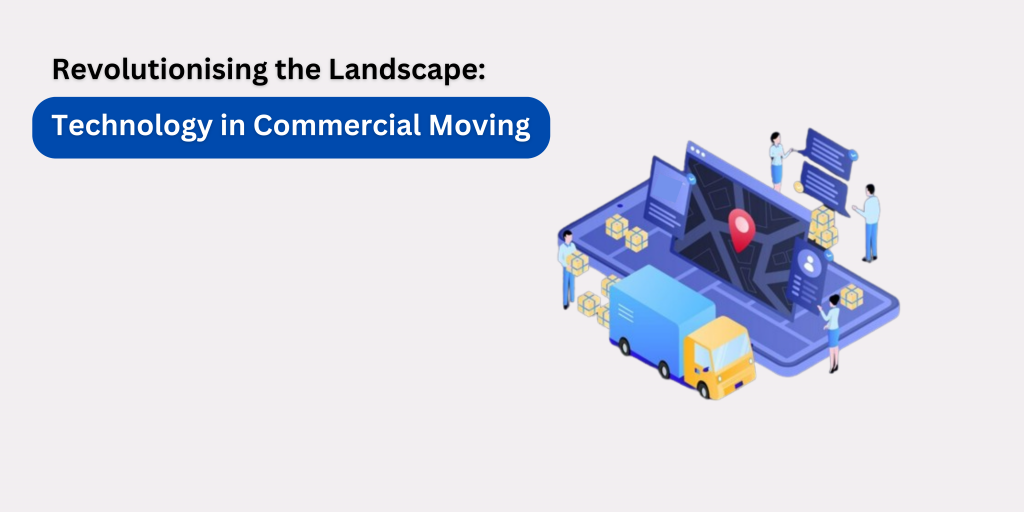Modern technology advancements are changing the face of the commercial moving sector and bringing about a significant transition. Businesses are adopting creative ways to expedite the relocation process in an age where accuracy and efficiency are critical. This blog article explores the major technology developments in commercial moving and how they are transforming the way companies move.
Business Moves Without Technology
Communication Challenges
In the absence of technology, communication becomes increasingly difficult during the moving process. Traditional means of coordination between staff members, vendors, and clients may be excessively relied upon, which can cause delays and miscommunications.
Risk of Data Loss
Large amounts of data, such as client information, financial records, and operational data, are frequently handled by businesses. Data loss is more likely when moving without technology, particularly if manual documenting and transfer techniques are employed.
Employee Productivity Challenges
Without technology to enable remote work or deliver real-time updates, employees can encounter disruptions in their work routines. During the relocation process, productivity may decrease, which could affect the business’s overall efficiency.
Manual Documentation Processes
Record-keeping and documentation procedures are made easier by technology. In the event of a relocation without digital documentation tools, crucial data, contracts, and legal documents could be misplaced or lost.
List of Technological Advances in Commercial Moving
Automated Inventory Management
Traditional inventory management during business movements sometimes entailed tedious, error-prone manual procedures. These days, companies are using RFID-powered automated inventory management systems. RFID technology stands for Radio-Frequency Identification. In this Technology, we use wireless communication to identify, track, and manage various objects or people
RFID tags consist of a microchip and an antenna are tagged on an object. This microchip contains unique identification and the antenna allows data transmission wirelessly. With the help of these real-time asset tracking solutions, you can be sure that no item is lost throughout the transportation process.
Internet of Things (IoT) Integration
With its frictionless communication between interconnected devices, the Internet of Things has made its way into the commercial moving industry. Businesses can keep an eye on environmental conditions, locate assets, and even evaluate the state of fragile equipment while it’s in transit thanks to smart sensors and devices. Throughout the entire shifting process, visibility and control are improved by this degree of connectedness.
Fleet Management Solutions
The efficiency of transportation in commercial movement has been increased with the integration of GPS and fleet management systems. Route optimization, real-time truck tracking, and on-time delivery are all possible for businesses. This improves overall operational efficiency through the use of technology in commercial moving.
Virtual Reality (VR) in Planning
When it comes to business move planning, virtual reality has become a game-changer. Now, companies can utilize VR simulations to see how their new workspace will be laid out, schedule the best routes for transporting equipment, and anticipate any problems. This optimizes the planning phase and reduces disturbances during the actual relocation.
Data Analytics for Decision-Making
Businesses are being empowered by data analytics tools to make well-informed decisions when moving their operations. Businesses can anticipate future difficulties, manage logistics, and deploy resources wisely by examining past data and trends. This data-driven strategy improves decision-making and makes the moving process go more smoothly.
In conclusion, the commercial moving business is entering a new era of efficiency and precision thanks to technological advancements. Businesses embracing these advances are benefiting from a streamlined and transparent moving process, from automated inventory management to IoT and VR integration. The commercial moving industry is positioned for even bigger breakthroughs as technology develops further, offering a future where relocations are frictionless, economical, and technologically sophisticated.



